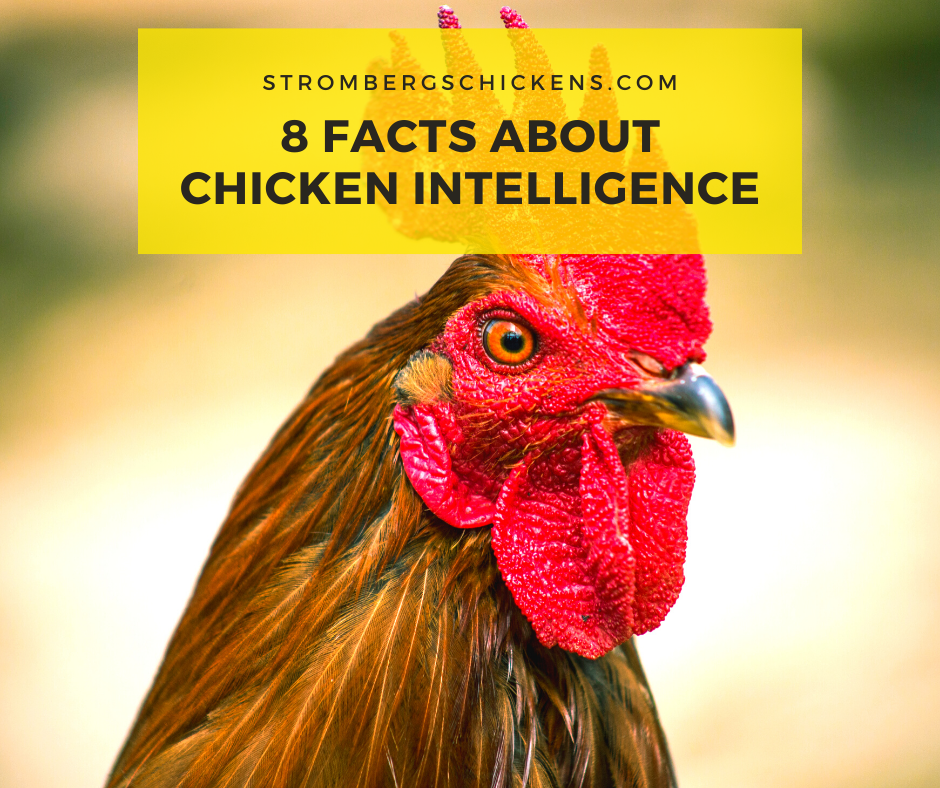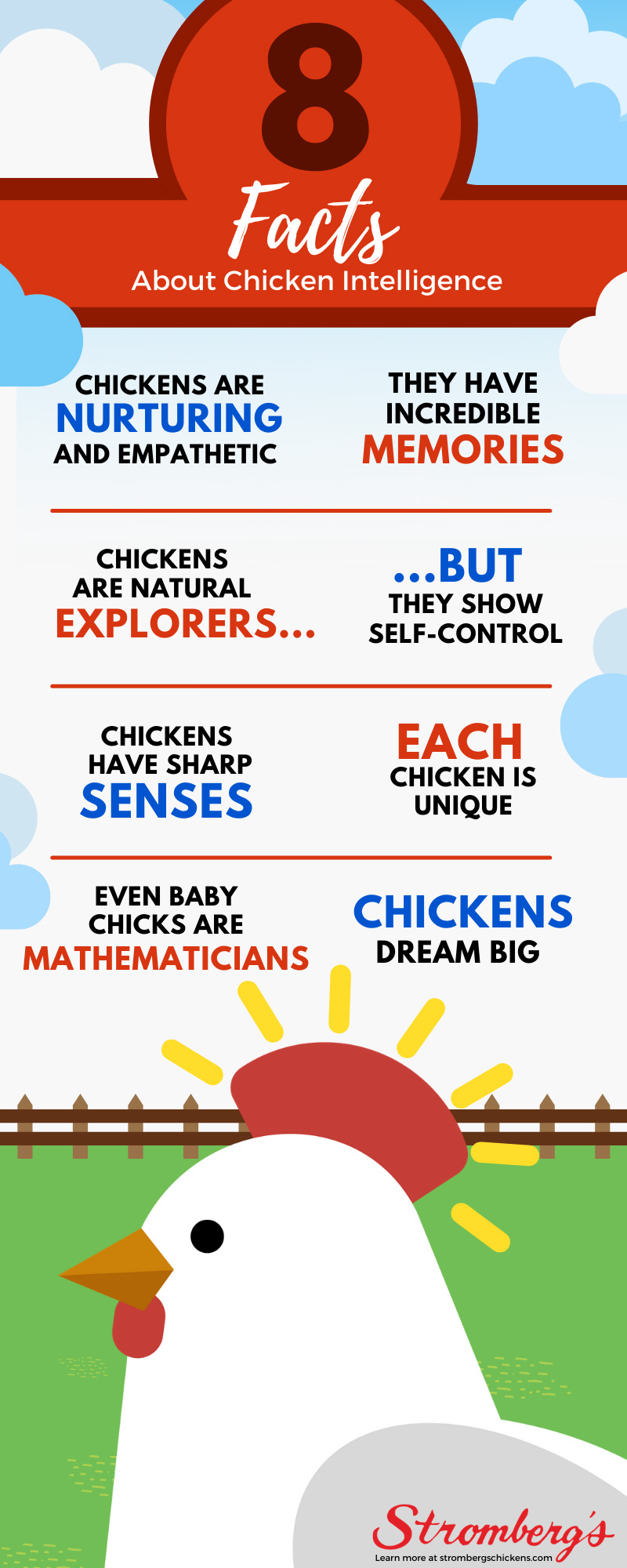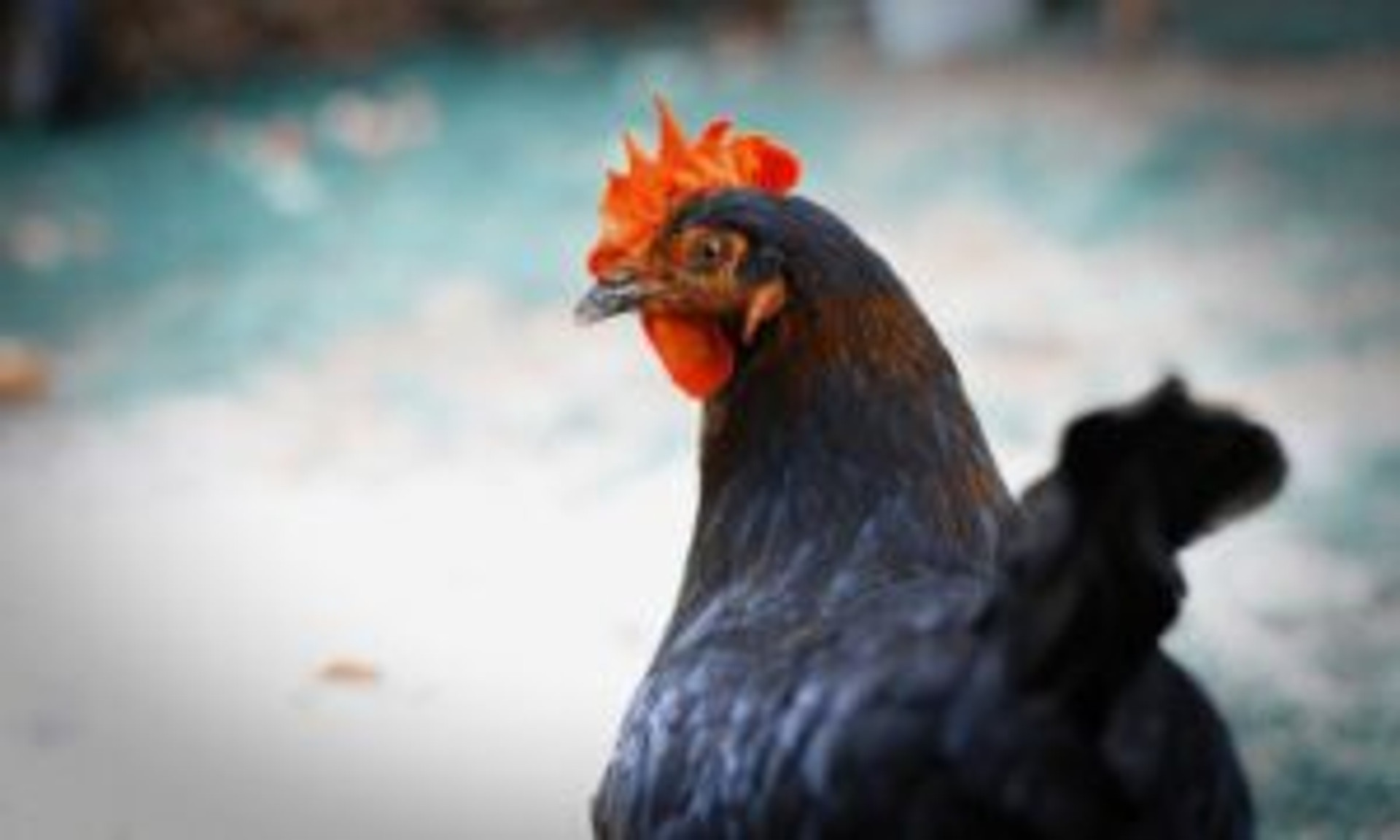8 Facts About Chicken Intelligence
People who have never interacted with chickens often believe them to be boring, dull, and on the lower end of the intelligence spectrum. These things couldn’t be farther from the truth. Most people need only spend a couple of hours among these charming birds to realize that there’s much more to them than meets the eye.
In fact, when it comes to problem-solving, emotional intelligence, and other thinking skills, chicken intelligence indicates that chickens are on par with many mammals, primates, and even some other bird species. Each member of your feathery flock is clever, curious, and one of a kind.
If you haven’t already fallen for these marvelous birds, read on to discover just a few of the endlessly fascinating facts about chicken intelligence and the cognitive abilities of these emotional animals.

Chickens are Nurturing and Empathetic
Have you ever referred to someone as a mother hen? This fussy but motherly stereotype stems from the incredibly nurturing nature of chickens. Mother hens are known to defend their young chicks fiercely.
From fussing over their feathers to keeping them safe from predators and other threats, a mother hen puts a lot of energy into making sure her chicks are healthy and happy. This nurturing behavior even extends into genuine empathy.
Mother hens will have a physical reaction to their chicks’ distress, showing that they feel stress whenever their babies are in danger. Chickens are also natural teachers. A hen will teach her chicks how to find food and avoid harmful grains.
The rest of the flock, which consists of individual chickens, will also learn from each other and copy one another’s behaviors.
They Have Incredible Memories
If you have backyard chickens, you know that your chickens can recognize you—and your family, the rest of the flock, and even your other pets. This is because chickens have remarkable memories. They can remember over 100 human and animal faces.
This means that your chickens know exactly who you are—and not just because you fill their feeders every morning. Chicken intelligence also encompasses object permanence. This means that if you show your chicken an object and then take it away, they still know that the object exists somewhere.
While humans might take this skill for granted, not every bird species or animal in the animal kingdom has it. For example, human babies don’t develop object permanence until they’re a few months old.
Chickens are Natural Explorers…
For better or worse, chickens are extremely curious about the world around them. They also hate being bored, which means your flock is going to explore as much as they can.
Chickens will often get their beaks—which are full of keen sensory receptors—stuck in anything they want to learn more about. From pecking at bugs on the ground to maneuvering around stumps, tunnels, and roosts, chickens greatly enjoy busting boredom through exploration.
That’s why chicken keepers must give their flock plenty of entertainment in the form of treats, toys, and interesting things to investigate within their run.
…But They Show Self-Control
Despite their curious and eager nature, chickens can demonstrate some measure of self-control. Researchers discovered this by testing them for delayed gratification. In an experimental setting, researchers gave chickens the option to wait for a short amount of time and receive a small amount of food or to wait longer and receive more food.
The chickens learned that resisting the food that showed up first meant they would receive more food later. This demonstrates their ability to assess a situation, control themselves, and make clever decisions. This is yet another testament to chicken intelligence.
Chickens Have Sharp Senses
We already touched on how chickens have remarkable sensory receptors in their beaks, but that’s not the only incredible sense they have. Chickens have binocular vision that allows them to focus on both close and far away things simultaneously.
Just as impressive, chickens can see more colors than humans. They can even see ultraviolet light. This leads some researchers to believe that hens use ultraviolet vision to determine which of their chicks are the healthiest. Chickens’ hearing is also impressive.
This is a common trait among prey animals, as better hearing makes it easier to detect predators. Chickens also stand out because they can regenerate hearing cells once the sense begins to deteriorate.
Even Baby Chicks are Mathematicians
Chickens might not be picking up a math textbook anytime soon, but they do show remarkable mathematical skills, such as counting and understanding ordinal positions. Researchers put three-day-old chicks’ math skills to the test through a series of addition and subtraction experiments.
When chicks observed someone moving small objects back and forth behind two screens, they were able to keep track of how many objects were behind each screen. When the movement was over, the chicks went to explore the screen with more objects behind it.
Researchers have also tested chicks’ ability to recognize ordinal positions (such as third, fourth, etc.) by giving them treats whenever they picked an object in the fourth position. Later, after changing the space and the number of objects in each position, chicks were still able to locate the fourth object to obtain a treat.
Chickens Dream Big
When humans dream, they enter the rapid eye movement, or REM, cycle of sleep. Chickens, being the intelligent animals that they are, also have a REM cycle during their sleep pattern. This means they also have dreams when they sleep.
While it’s impossible to tell exactly what chickens dream about, the fact that they have dreams demonstrates the range of their emotional intelligence and intellect.
Each Chicken is Unique
When you glance over your chickens, you can tell them apart based on their size or the precise color and pattern of their feathers. However, chicken keepers also learn to tell their chickens apart based on personality.
Chickens have strong and individual personalities, just like humans. Every member of the flock has unique likes and dislikes. Their personalities might also be reflected in their temperament. Some chickens will be more laid-back and friendly, while others might be bold and adventurous. This is part of why chickens develop a pecking order.
Everyone has their own behavior, routine, and position within the flock.
Scientists are constantly learning new facts about chicken intelligence that make bird enthusiasts fall even more in love with these fascinating creatures. Has this list piqued your interest?
You can start your own flock of clever and charming chickens when you stop by Stromberg’s Chickens. Be sure to check out our range of chicken coops and coop housing supplies before you go!


